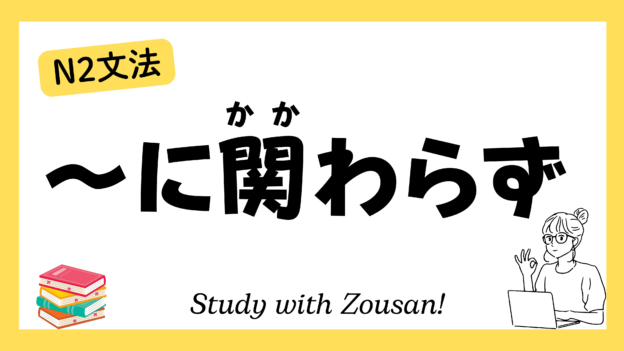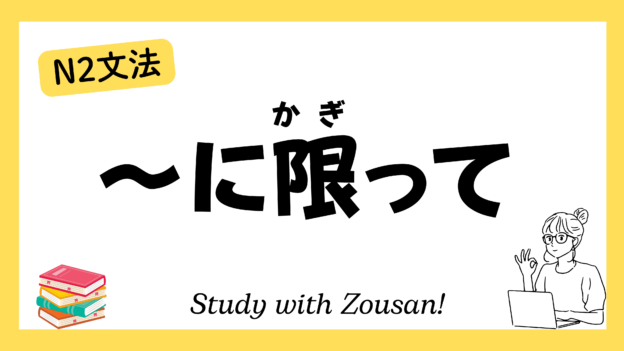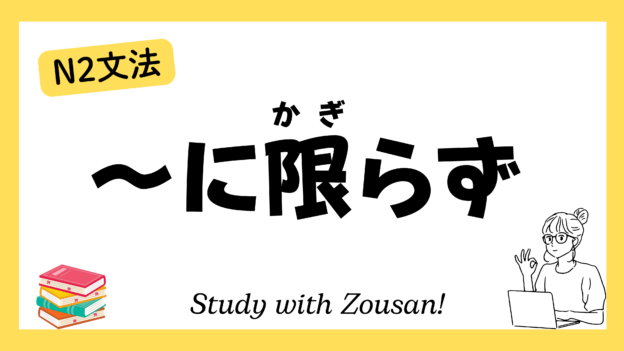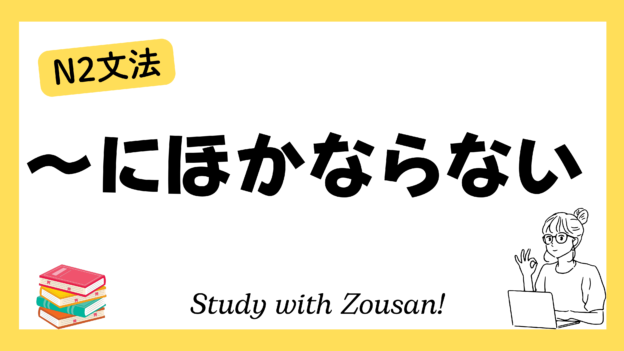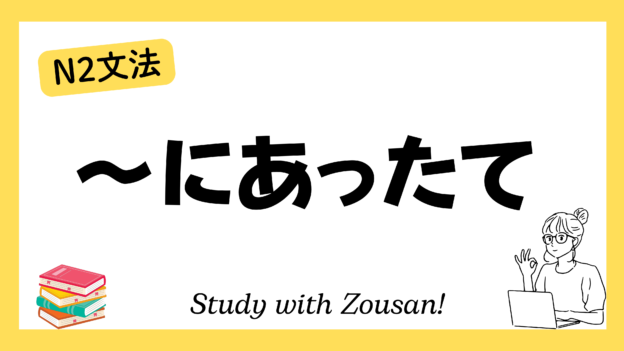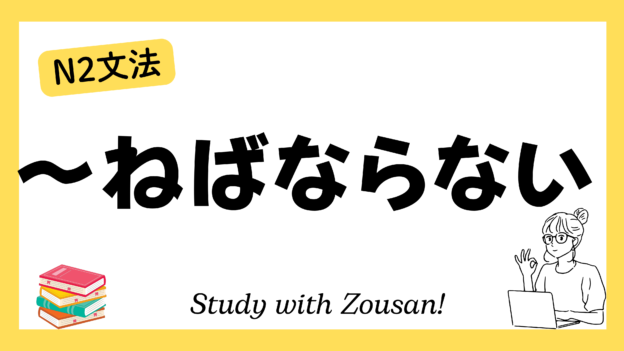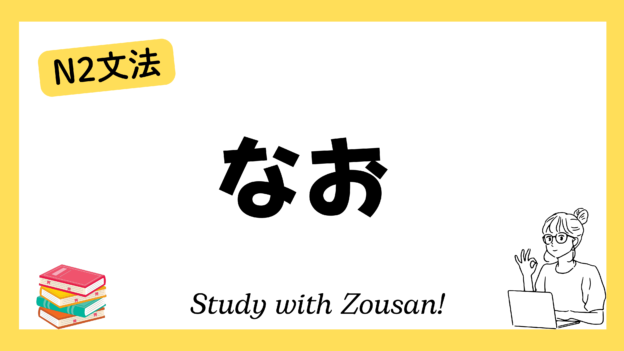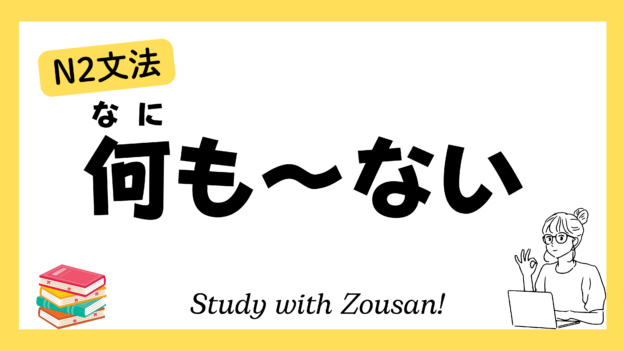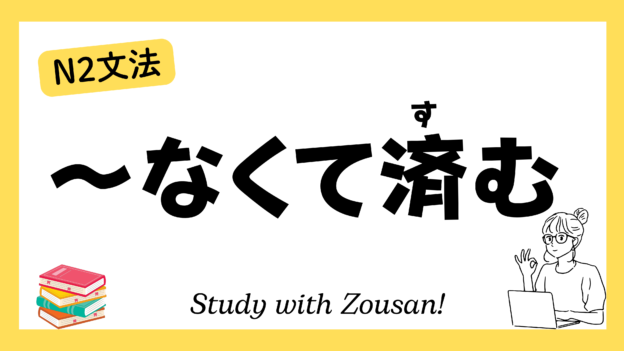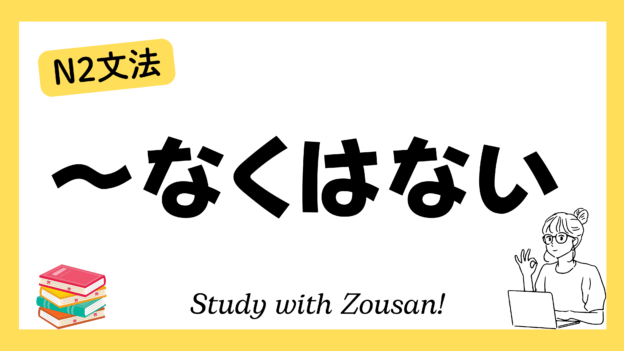Meaning: “Regardless of…” / “No matter…” / “Without regard to…”
The structure ~に関わらず is used to express that an action or situation occurs regardless of certain conditions or without distinguishing specific factors. It emphasizes that an event will not change no matter what the circumstances, conditions, or situations are.
※Note:
・This structure is often used in formal contexts, announcements, or situations where the speaker wants to emphasize uniformity or non-discrimination.
・It can be used with nouns, adjectives, or conditional phrases, emphasizing that the action or situation occurs without being affected by other factors.
Structure:
| Verb (dictionary form) | + に関わらず(にかかわらず) |
| Noun | |
| Adjective |
Example:
-
-
-
🌟 天候に関わらず、試合は行われます。
(てんこう に かかわらず、しあい は おこなわれます)
The match will be held regardless of the weather. -
🌟 年齢に関わらず、このイベントに参加できます。
(ねんれい に かかわらず、この イベント に さんか できます)
You can participate in this event regardless of age. -
🌟 経験に関わらず、誰でも応募できます。
(けいけん に かかわらず、だれ でも おうぼ できます)
Anyone can apply, regardless of experience. -
🌟 性別に関わらず、この職種に応募可能です。
(せいべつ に かかわらず、この しょくしゅ に おうぼ かのう です)
You can apply for this position regardless of gender. -
🌟 結果に関わらず、最善を尽くしたことに満足しています。
(けっか に かかわらず、さいぜん を つくした こと に まんぞく して います)
Regardless of the result, I am satisfied that I did my best. -
🌟 出欠に関わらず、会議資料を配布します。
(しゅっけつ に かかわらず、かいぎ しりょう を はいふ します)
The meeting materials will be distributed regardless of attendance. -
🌟 意見の賛否に関わらず、全員の意見を尊重します。
(いけん の さんぴ に かかわらず、ぜんいん の いけん を そんちょう します)
Everyone’s opinion will be respected regardless of whether they agree or disagree. -
🌟 雨が降るかどうかに関わらず、ピクニックに行きます。
(あめ が ふる か どうか に かかわらず、ピクニック に いきます)
We will go on a picnic regardless of whether it rains or not. -
🌟 時間に関わらず、いつでも連絡してください。
(じかん に かかわらず、いつ でも れんらく して ください)
Please contact me at any time, regardless of the hour. -
🌟 理由に関わらず、遅刻は許されません。
(りゆう に かかわらず、ちこく は ゆるされません)
Lateness will not be tolerated regardless of the reason.
-
-


